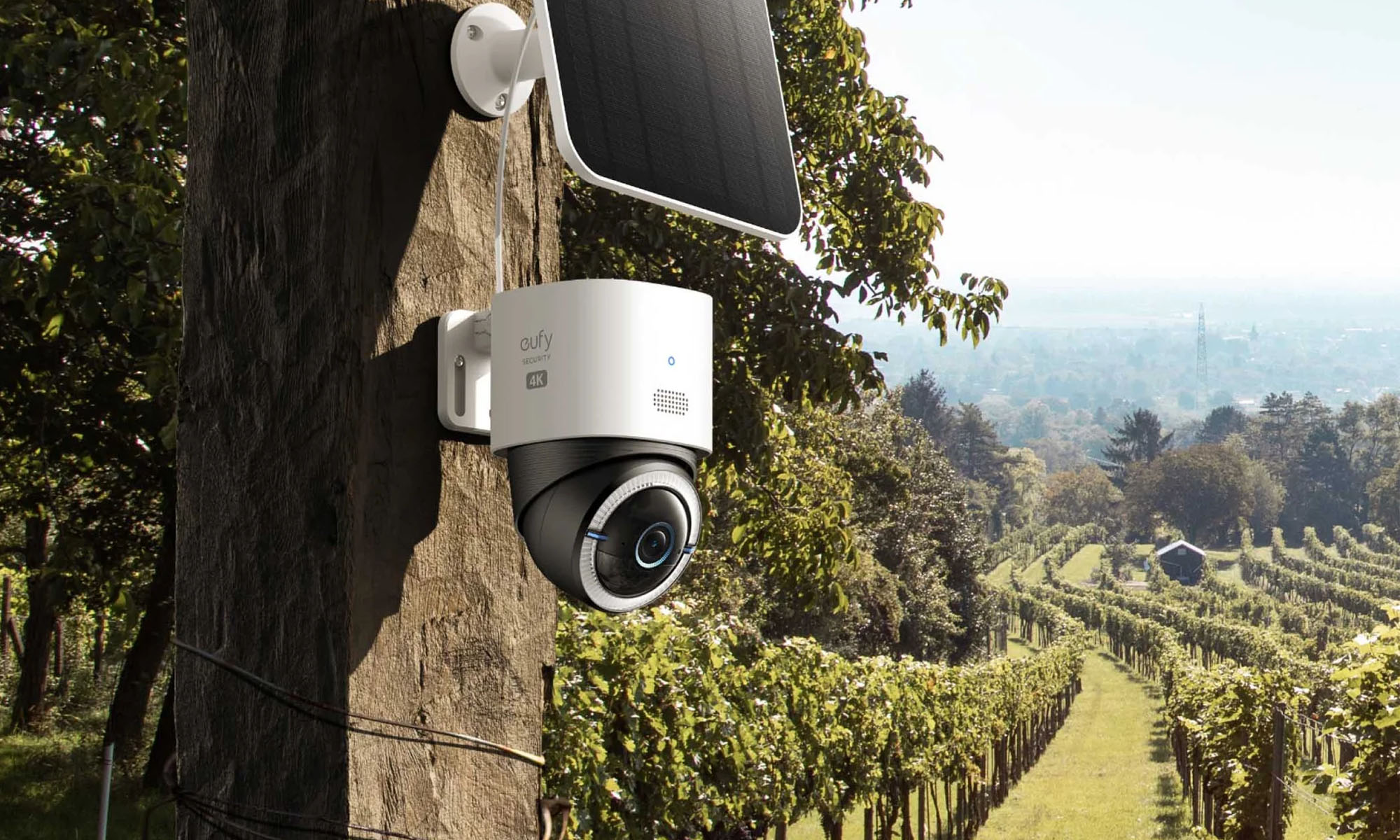News
Eufy’s New 360° 4K Camera Doesn’t Require Wi-Fi Or Mains Power
The device has the same $249.99 launch price as the firm’s previous LTE-equipped Starlight camera but offers many more features.

Anker’s Eufy division has unveiled the S330, a feature-packed and fully self-sufficient 4K security camera offering a full 360-degree field of view, with pan up to 344 degrees and tilt capabilities of 70 degrees. What sets the device apart is its ability to operate autonomously without the need for Wi-Fi or conventional power sources, a feature the company touts as “off-the-grid freedom”.
Priced at $249.99, the Eufy 4G LTE Cam S330 utilizes LTE (4G) connectivity, bypassing the necessity for Wi-Fi by tapping into nearby cell towers. In addition, it features a removable solar panel, requiring just two hours of sunlight to sustain its 36.2Wh battery. With a battery life of up to one month on a single charge, it remains operational even in adverse or overcast weather conditions.
The S330 effectively addresses previous concerns with LTE-enabled cameras, offering versatile installation options for both urban and remote settings. Designed to withstand extreme temperatures (-4 to 122 degrees Fahrenheit) and equipped with AI-powered detection for vehicles and humans, it also ensures minimal false alarms.
Also Read: Meet LiFi: The New Tech Delivering High-Speed Internet Using Light
Additionally, the S330 incorporates a 100-lumen spotlight for illumination and supports two-way audio, alarm activation, and voice control via Google Assistant and Amazon Alexa. Local storage of up to eight months’ worth of recordings is facilitated by a 32GB microSD card, with expansion options up to 128 GB.
Eufy claims there are no activation fees or contracts for utilizing the camera’s SIM card facility, but users will need to pay for any data used after the initial 100MB trial has been used up. Apparently, the S330 uses an average of 700 MB a month, which is definitely something you’ll want to factor in before making a purchase.
News
Samsung Smart Glasses Teased For January, Software Reveal Imminent
According to Korean sources, the new wearable will launch alongside the Galaxy S25, with the accompanying software platform unveiled this December.

Samsung appears poised to introduce its highly anticipated smart glasses in January 2025, alongside the launch of the Galaxy S25. According to sources in Korea, the company will first reveal the accompanying software platform later this month.
As per a report from Yonhap News, Samsung’s unveiling strategy for the smart glasses echoes its approach with the Galaxy Ring earlier this year. The January showcase won’t constitute a full product launch but will likely feature teaser visuals at the Galaxy S25 event. A more detailed rollout could follow in subsequent months.
Just in: Samsung is set to unveil a prototype of its augmented reality (AR) glasses, currently in development, during the Galaxy S25 Unpacked event early next year, likely in the form of videos or images.
Additionally, prior to revealing the prototype, Samsung plans to introduce…
— Jukanlosreve (@Jukanlosreve) December 3, 2024
The Galaxy Ring, for example, debuted in January via a short presentation during Samsung’s Unpacked event. The full product unveiling came later at MWC in February, and the final release followed in July. Samsung seems to be adopting a similar phased approach with its smart glasses, which are expected to hit the market in the third quarter of 2025.
A Collaborative Software Effort
Samsung’s partnership with Google has played a key role in developing the smart glasses’ software. This collaboration was first announced in February 2023, with the device set to run on an Android-based platform. In July, the companies reiterated their plans to deliver an extended reality (XR) platform by the end of the year. The software specifics for the XR device are expected to be unveiled before the end of December.
Reports suggest that the smart glasses will resemble Ray-Ban Meta smart glasses in functionality. They won’t include a display but will weigh approximately 50 grams, emphasizing a lightweight, user-friendly design.
Feature Set And Compatibility
The glasses are rumored to integrate Google’s Gemini technology, alongside features like gesture recognition and potential payment capabilities. Samsung aims to create a seamless user experience by integrating the glasses with its broader Galaxy ecosystem, starting with the Galaxy S25, slated for release on January 22.




















